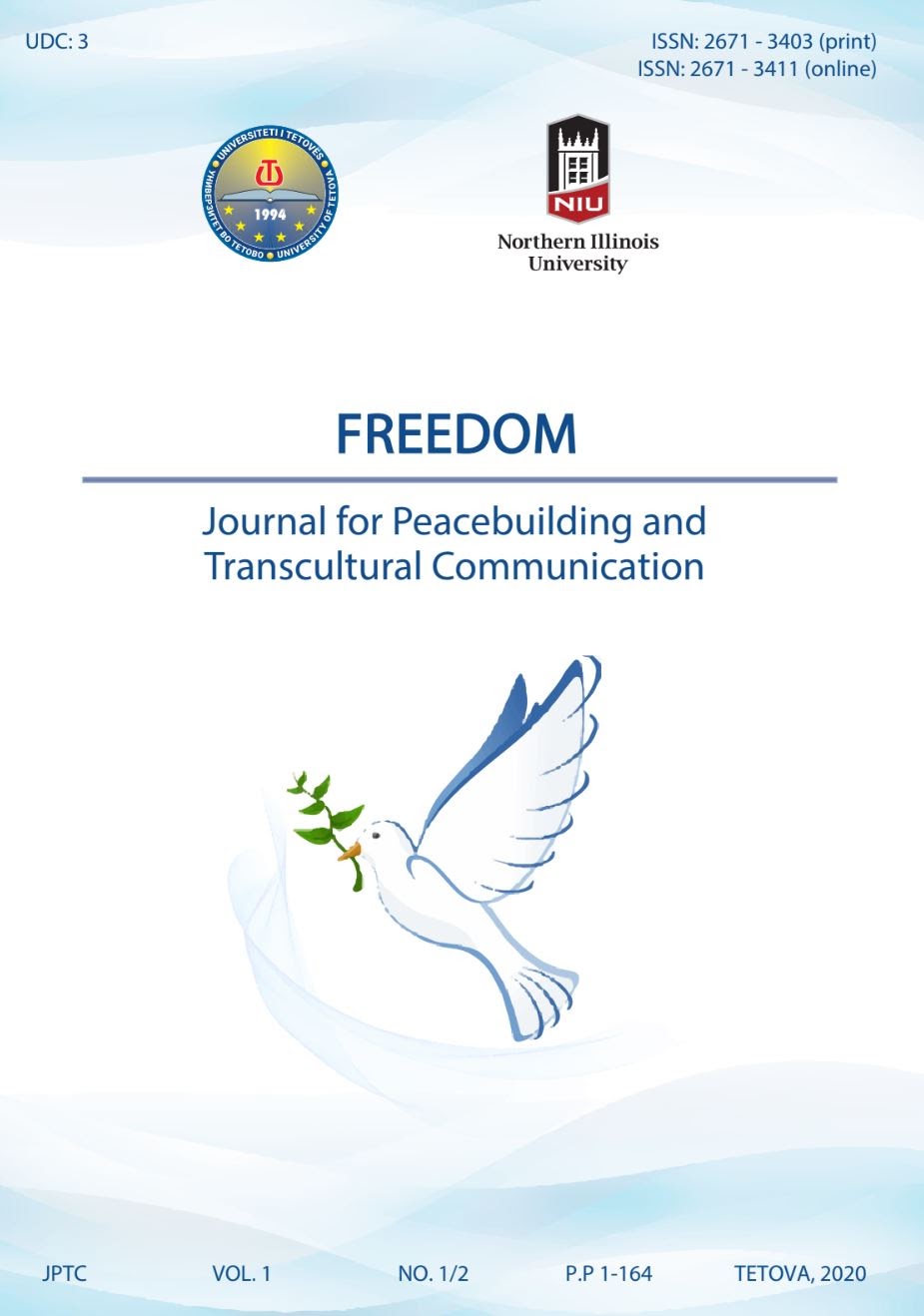THE US ROLE IN STOPPING THE SERBIAN BARBARISM IN KOSOVO
THE US ROLE IN STOPPING THE SERBIAN BARBARISM IN KOSOVO
Author(s): Fehari RamadaniSubject(s): Politics / Political Sciences, Politics, Peace and Conflict Studies
Published by: University of Tetova
Keywords: USA; Kosovo; Serbia; stopping of barbarism; peace implementation
Summary/Abstract: The Kosovo war of 1998-1999 was the most terrible in the history of Europe post-World War II. Since Kosovo’s Serb occupation during the First Balkan War (1912-1913) and until the final departure of the Serbian regime from this region (1999), the majority of population, i.e. the Albanian one, was facing systematic violence of the government in Belgrade. The persecution of the majority of population in Kosovo from the Serbian state authorities culminated in 1998-1999 when Serb state violence reached the proportions of genocide. Serbian government's goal was to cleanse the territory of Kosovo from Albanian population, a goal sought to be achieved by forced dislocation, killing and assimilation of Albanians. U.S. and Western Europe diplomatic efforts to stop the state barbarism of Belgrade on Kosovo Albanian population through dialogue with the Serbian government ended unsuccessfully. Serbian reluctance, forced the US along with 18 other NATO countries, to intervene militarily to prevent this policy. They realized, as will US President Bill Clinton state, "that in the Balkans inaction facing cruelty simply creates other madness". NATO intervention saved many lives, it stopped the massacres and ethnic cleansing and created the necessary conditions for the establishment of lasting peace and building of a society without ethnic, racial and religious hate.
Journal: FREEDOM - Journal for Peacebuilding and Transcultural Communication
- Issue Year: 1/2020
- Issue No: 1-2
- Page Range: 55-65
- Page Count: 11
- Language: English

